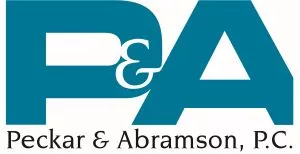I've been in the unenviable situation of taking over a shareholder dispute where the client has been bogged down in litigation and has become frustrated with her counsel. It can be the case at times that majority members of an LLC or corporation freeze out a minority member, deprive them of their position and the financial remuneration that comes with that, and then file suit in a court in order to drag out the process. Consequently, the majority hopes that the minority member simply caves under the financial pressure.
ADR
An often overlooked option is the ability to force a dispute into alternative dispute resolution ("ADR"), which takes the form of an arbitration or other alternative means to resolve a deadlock. ADR provisions are commonly included in an operating agreement.
Oftentimes, the counsel you choose may dictate whether you trigger the clause, because: 1) the lawyer may overlook this possibility; 2) the lawyer may know of the clause but simply fail to trigger it because he/she thinks arbitration is a bad idea; or 3) the lawyer may give you a jaded view of arbitration and dissuade you from triggering the clause.
I obtained a decision from the Appellate Division, Comando v. Nugiel, where a minority member of an LLC (my client) triggered a clause requiring any deadlock over whether to sell the LLC's property to arbitration. In that scenario, the trial court refused to honor the arbitration clause. However, in New Jersey, a party has an immediate right of an appeal when arbitration is refused. That appeal was successful.
Generally speaking, arbitration has many benefits, but it does have its negative aspects.
Pros
- Discovery is streamlined, and the process can go quicker, saving you from expensive motion practice in court.
- Decisions are quicker, generally speaking.
- Arbitrations are generally more convenient with the arbitrator working closely with counsel and their clients to schedule hearings for the convenience of all involved.
Cons
- You have to pay the arbitrator. A good arbitrator may charge between $400-600 per hour. The parties typically share the responsibility of paying these fees. If you win, you may be able to recover all of this back.
- Decisions are generally unappealable with only a few exceptions such as where the arbitrator engaged in fraud.
- If you pick a bad arbitrator, you could be stuck with that person, and get a bad decision. This is why the selection of a reputable arbitrator is key.
If you are contemplating a lawsuit against your co-members or co-shareholders, you should carefully look at the governing documents (ie., shareholder agreements, operating agreements) and consider the pros and cons of arbitrating your dispute. It is imperative that you do this analysis at the inception of the shareholder dispute.
The content of this article is intended to provide a general guide to the subject matter. Specialist advice should be sought about your specific circumstances.

